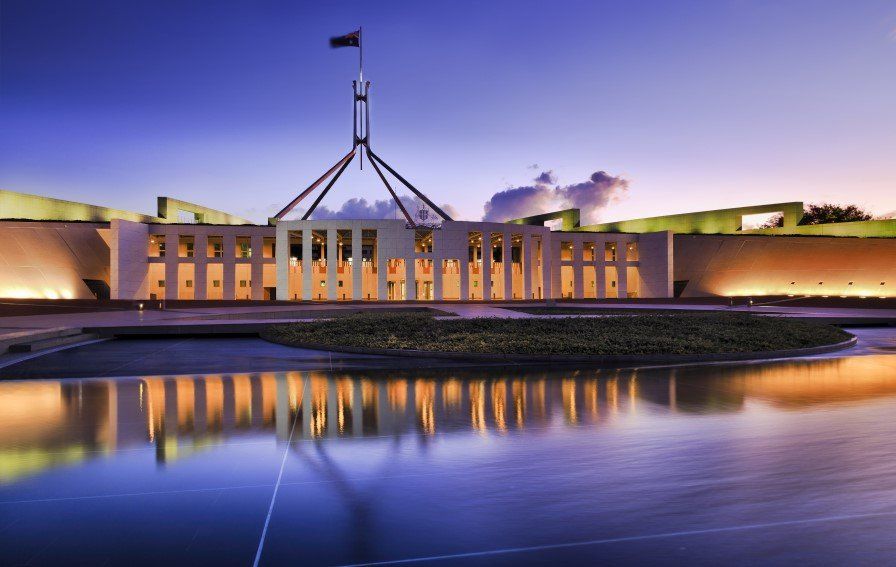The 2021 Federal Budget has been handed down by the Treasurer, for individuals the government has retained the low and middle income tax offset as well as the low income offset for the 2021-22 income year which will ensure that low and middle income earners won't lose out in relation to tax refunds. Other than that, personal tax rates will remain unchanged until 1 July 2024. There will also be changes coming to childcare, self-education and residency, although not until at least the next financial year.
As is tradition, the second Tuesday in May saw the Treasurer, Josh Frydenberg handed down the 2021-22 Federal Budget, his third. Overall, he noted that while the Australian economy has recovered from COVID-19 impacts in record time, the Budget deficit will still reach $161bn in 2020-21, and is projected to slowly decrease to $106.6bn in 2021-22 and $57bn in 2024-25. So, with the government continuing its spending spree in order to keep the economic engine going, individuals are set to benefit with the following, albeit delayed changes.
LMITO and low income tax offsets
The government will retain the low and middle income tax offset (LMITO) for the 2021-22 income year. It was previously legislated to only apply to the end of the 2020-21 income year which would've seen low-to-middle income earners lose between $255 to $1,080 in tax refunds.
The amount of the LMITO remains the same as the 2020-21 income year, that is $255 for taxpayers with a taxable income of $37,000 or less. Those earning between $37,000 and $48,000, the value of LMITO increases at a rate of 7.5 cents per dollar to the maximum amount of $1,080. Taxpayers with taxable incomes from $48,000 to $90,000 are eligible for the maximum LMITO of $1,080. From $90,001 to $126,000, LMITO phases out at a rate of 3 cents per dollar.
The low income tax offset (LITO) will also continue to apply in conjunction with the LMITO. The LITO was originally intended to replace the LMITO from 2022-23 but was subsequently brought forward in the 2020 Budget to assist households finances in wake of COVID-19.
The maximum amount of LITO is $700 for those earning up to $37,500. Those earning between $37,501 and $45,000 will have LITO withdrawn at a rate of 5 cents per dollar. Taxpayers earning between $45,001 and $66,667 will have LITO withdrawn at a rate of 1.5 cents per dollar. Those earning above $66.668 are not eligible for the LITO.
$250 threshold to be removed for self-education expenses
It was announced that the government will remove the exclusion of the first $250 of deductions for prescribed courses of education. Currently, if a taxpayer incurs self-education expenses in relation to a course provided by a university, college etc, for the purpose of gaining qualifications for use in carrying on of a profession, business or trade or in the course of any employment, the first $250 of the cost is not deductible.
Although the government is seeking to remove barriers to taxpayers gaining new qualifications and being nimble in the post-COVID-19 economy, the measure is not expected to start until the first income year after the date of Assent of enabling legislation. This means that unless legislation is introduced, passed and receives Assent before 30 June 2021, the measure will not start until 2023.
Tax residency changes
The government will replace the existing tests for tax residency with a primary test under which if a person who is physically present in Australia for 183 days or more in any income year will be an Australian tax resident. Those that do not meet the primary test will be subject to secondary tests that depend on a combination of physical presence and measurable, objective criteria. As with the self-education expenses, the government has not committed to any firm dates for the legislation to come into effect.
Other measures: childcare; personal tax rates
As previously announced by the government, the Budget confirmed that it will make an additional $1.7bn investment in childcare, although changes will not commence until 1 July 2022 (the next financial year!). The Budget also confirmed that there will not be any changes to personal tax rates for the 2021-22 income year, which means the rates remain the same as the 2020-21 income year. Personal tax rates are not expected to change until 1 July 2024 which was when the previously legislated "Stage 3" tax cuts are due to take place.
Need further information?
We can help you take advantage of the tax changes occurring in the immediate term and plan for the changes that are coming in the future. Contact us today for expert advice.
Email us at Robert Goodman Accountants at reception@rgoodman.com.au . © Copyright 2021 Thomson Reuters & Knowledge Shop. All rights reserved. Brought to you by Robert Goodman Accountants.










